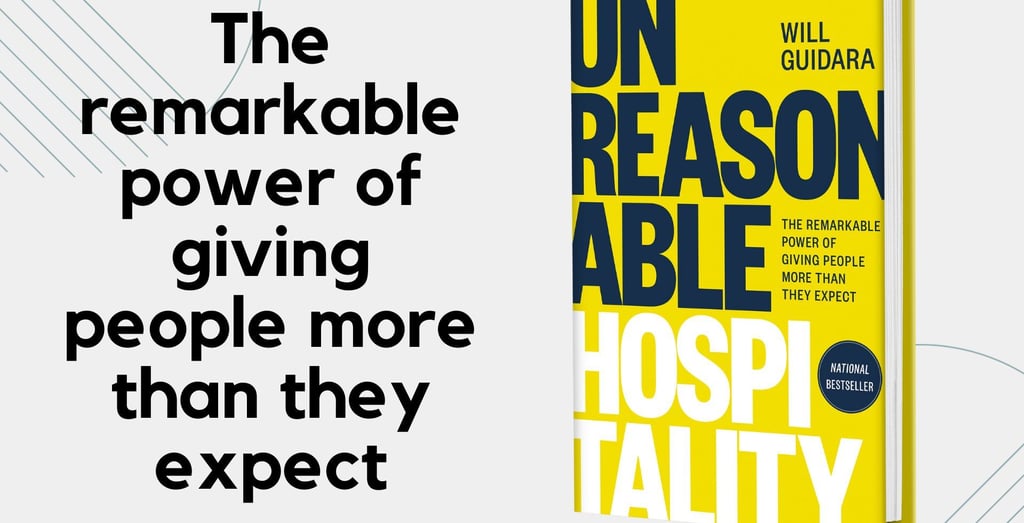Unreasonable Hospitality: Beyond Expectations in Service
THE EDITORIAL CHEESE
Patrick Petinglay Villavert
11/12/20252 min read


Will Guidara's "Unreasonable Hospitality" isn't just a book; it's a manifesto for transforming service from merely good to truly unforgettable. Guidara, co-owner of the acclaimed Eleven Madison Park, argues that while "reasonable" hospitality meets expectations, "unreasonable" hospitality exceeds them, creating moments of genuine surprise and delight that foster deep loyalty. This philosophy transcends the restaurant world, offering valuable lessons for any business aiming to cultivate exceptional customer experiences.
At its core, unreasonable hospitality is about understanding that every interaction is an opportunity to go above and beyond. It requires a profound empathy for the guest, anticipating their unstated needs and wants, and then delivering something unexpected and personal. It's about empowering staff to make spontaneous decisions that elevate the guest's experience, rather than adhering rigidly to protocols.
One of the key tenets Guidara champions is the idea of "making it right" before a guest even knows something is wrong. This proactive problem-solving prevents minor inconveniences from escalating into negative experiences. It's about observing, listening, and being attuned to the subtle cues that indicate a guest might need something, even if they haven't explicitly asked.
The impact of unreasonable hospitality can be seen in the fictional world of Showtime's "Billions." While the show is primarily about high finance and power plays, the characters' interactions, particularly in their pursuit of the best, often mirror the principles Guidara espouses. Bobby Axelrod, the hedge fund kingpin, demands nothing less than perfection in every aspect of his life, from his customized meals to his meticulously managed private jets. He expects an almost prescient understanding of his desires, and those who provide service to him often go to extraordinary lengths to meet these unspoken demands.
Consider the scene where Axe Capital's chef, in an attempt to appease Axelrod's idiosyncratic tastes, sources specific, rare ingredients from across the globe. This isn't just about fulfilling an order; it's about anticipating a preference and then executing it with an almost obsessive dedication, echoing Guidara's emphasis on personalized, unexpected gestures. The chef’s effort isn’t just reasonable; it’s an unreasonable pursuit of culinary perfection tailored specifically for his discerning boss.
Another example from "Billions" can be found in the interactions at exclusive events or private clubs frequented by the show's elite. While often portrayed with a veneer of transactional relationships, there are underlying currents of "unreasonable hospitality" at play. The sommeliers who remember a character's obscure vintage preference, the maître d' who magically finds a table during a fully booked evening, or the personal assistants who foresee and mitigate potential inconveniences – these are all examples of individuals going beyond their defined roles to create a seamless and elevated experience. They anticipate needs, offer solutions before problems arise, and often provide a touch of personalized service that fosters a sense of being truly valued.
In essence, these "Billions" moments, while perhaps more exaggerated for dramatic effect, highlight the core principle of unreasonable hospitality: that true service excellence lies in the details, in the proactive generosity, and in the genuine desire to create a memorable and profoundly positive experience for the other person. It's about making people feel not just served, but truly cared for.
Guidara's book is a call to action for anyone in a service-oriented role to re-evaluate their approach. It encourages a shift from transactional interactions to meaningful connections, demonstrating that when you consistently exceed expectations in surprising and personal ways, you don't just gain customers – you create advocates.
